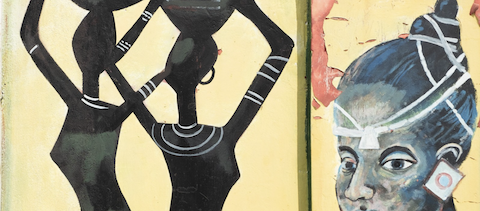
GCED Basic Search Form
Quick Search
Vous êtes ici
Nouvelles

One of the most widespread and damaging legacies of the slave trade is racism, discrimination, and prejudice that affects every continent of our planet.
Every year, on August 23, UNESCO commemorates the International Day for the Remembrance of the Slave Trade and its Abolition to highlight and raise awareness on the importance of sharing history as a mechanism to fight against all forms of oppression, discrimination and racism in contemporary times.
On this day in 2021, the Casa de las Américas, the National Commission for UNESCO in Cuba (CNCU) in cooperation with the Ministry of Culture and with support of UNESCO, represented by its UNESCO Regional Office for Latin America and the Caribbean in Havana and the UNESCO Cluster Office for the Caribbean in Kingston, united to strengthen the culture and values transmitted from Africa to its diaspora to promote cultural expression, inclusion and mutual understanding, while raising awareness of the fearful past of the Trans-Atlantic Slave Trade. This is in line with UNESCO's Global Appeal against Racism adopted at the 210th session of UNESCO's Executive Board in the fight against exclusion and racial discrimination.
Lest we forget, on the night that spanned August 22 and 23, 1791, the enslaved in the French colonized Saint-Domingue, started a revolution, the only instance of a successful armed black protest in world history and the founding event of the first modern black Republic.
-- Dr. Verene Shepherd, Director of the Centre for Reparation Research, UWI
Dr. Verene Shepherd, Director of the Centre for Reparation Research at the University of the West Indies (UWI) based in Kingston, Jamaica, provided remarks at a panel discussion organized by Casa de Las Américas as part of its Afroaméricaprogramme. She adds “In a cruel twist of fate, while today we are celebrating the start of that glorious revolution that resulted in Haitian independence in 1804, we are also mourning the loss of lives because of yet another earthquake.
The inability of their social and physical infrastructure to withstand natural hazards is part of that colonial legacy manifested not only in environmental degradation, but also in the economic poverty of a nation that faced a crippling reparation debt until 1947 and external interference before and after 1947.
-- Dr. Verene Shepherd, Director of the Centre for Reparations Research
This panel session aims to provide a historical panorama on the Slave Trade, linking past and present through an analysis of recent Latin American and Caribbean research on the Slave Trade, the Slave Trade as a literary theme in Latin American novels, and the legacy of the Slave Trade and the quest for justice and equity in the Caribbean.
Watch Prof. Shepherds contribution here. Other panelists are Ms. C. Miriam Herrera and Dr. C Ronald Antonio Ramirez, both professors at the University of Havana. Presentations are available on the Casa de las Americas website.
August 23 commemorates the anniversary of the insurrection, on the night of August 22-23, 1791, of enslaved men and women who rose against the brutality of their oppressors in Saint-Domingue to pave the way for the end of slavery and dehumanization. This revolt, which took place in what is today known as Haiti, marks the universal demand for freedom, the end of colonial slavery, and dehumanization. The ripple effect of the 1791 uprising has shaped the course of peoples' liberation struggles and movements for the defense of human and civil rights for more than 200 years. It crystallizes the challenges, concepts, and principles that are essential to know in today's fight against modern slavery and human trafficking. The lessons of this history are fundamental to shaping the path to peace and dignity and the non-repetition of past cruelty.
Drawing on more than 25 years of experience in breaking the silence on the slave trade and slavery, UNESCO stresses the importance of recognizing the links between the history of the slave route and modern expressions of prejudice, racism, and discrimination. UNESCO also emphasizes the contributions of enslaved people to the receiving societies through the identification, preservation, and promotion of sites and itineraries of memory.
UNESCO's Slave Route project was launched in 1994 to contribute to a better understanding of the impact of this history on our modern world and thus promote intercultural dialogue and mutual understanding. It explores the foundations, ways of functioning, and consequences of the slave trade and slavery in different regions of the world. It offers the opportunity to reflect together on the historical causes, methods, and consequences of the slave route.
Links:
URL:
